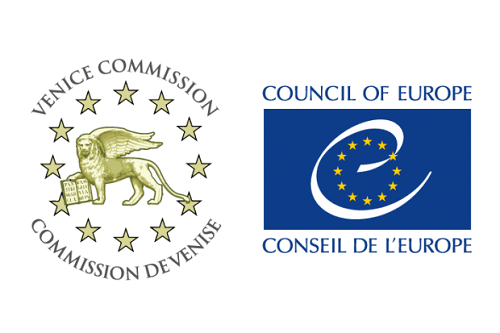
Venice Commission Opinion on Appointment of Supreme Court Judges
The Venice Commission, the Council of Europe’s (CoE) advisory body for legal affairs, released on April 16 its opinion on the selection and appointment of judges of the Supreme Court of Georgia.
The request for an urgent opinion was made by the Speaker of the Parliament of Georgia, Irakli Kobakhidze, after political controversies and public criticism that followed the presentation of a ten-member list of candidates to the Parliament by the High Council of Justice, the body overseeing the judiciary.
More specifically, the Venice Commission was asked to evaluate three amendments bills containing the provisions on the selection and appointment of Supreme Court judges, including the main text – the ruling party-proposed amendments to the Law on Common Courts, passed on first reading on March 20, 2019.
What does the endorsed draft say?
- Selection procedures
Georgian citizen who is older than 30, with advanced level of legal education and relevant work experience, is eligible to be nominated to the Supreme Court. The “relevant experience” is interpreted to include: incumbent and former judges with more than five years of tenure; those former judges who have stopped practicing less than ten years ago; experts of law with five years of work experience, who have passed the qualification exams to become judges.
- Nomination procedures
The High Council of Justice (HCoJ) announces a competition to select the candidates. After receiving the applications, it posts the list of eligible applicants and their biographies on HCoJ official website.
To arrive at the long-list of candidates, HCoJ takes the first – secret – ballot. Those selected then pass public interviews with HCoJ. Another secret vote takes place to further reduce the number of candidates.
The list of the finalists is then made public. The HCoJ then votes to submit the candidates to the Parliament, for final approval. A candidate must get at least two thirds of the HCoJ members vote, to be submitted to the Parliament.
What does the Venice Commission say?
The Venice Commission welcomes the amendments on the selection and appointment of the judges of the Supreme Court, but highlights a number of areas where further improvements are needed.
- General recommendations
According to the document, the Venice Commission was informed during its meetings in Tbilisi that the HCoJ “enjoys a fairly low trust by a large segment of society at the moment.”
The Commission said it is “in no position” to evaluate the merits of such allegations, but noted that “the fact that the HCoJ – in its current situation – will be selecting nearly all the candidates for judges of the Supreme Court, producing a list which will then be submitted to a political majority in Parliament (in between elections), which in turn will appoint nearly all the Supreme Court judges, should be a matter of concern.”
To alleviate these concerns and ensure continuity in the work of the Supreme Court, the Venice Commission suggests transforming the fixed term of office of the current Supreme Court judges to lifetime appointments.
It also recommends appointing the number of new judges that is “absolutely necessary to render the work of the Supreme Court manageable.” According to the opinion, the number of judges to be added should be decided in consultation with the Supreme Court, but “should not exceed half of the 18 to 20 positions that will be vacant.”
The Commission also says further appointments may be made after the next Parliamentary elections.
- Eligibility criteria
The Venice Commission says the draft law is “too lenient” with respect to the age and experience requirements, and suggests higher formal thresholds for both.
The Commission also points out that the eligibility criteria for non-judge candidates seems to be unduly restrictive, and recommends lifting the requirement for passing the judicial examination.
The Venice Commission believes, persons “of distinguished qualification in the field of law” should not be “forced to sit an examination to prove that they are capable of dealing with points of law.
- Nomination procedures
The Commission says holding secret ballots for shortlisting the applicants and selecting the final list of nominees is the “principal difficulty” in the draft law. It calls for abolishing this rule.
It also suggests HCoJ members wishing to compete for vacant Supreme Court seats to be excluded from all procedures pertaining to the selection and nomination of candidates.
The opinion contains a number of other recommendations, including on the Chief Justice of the Supreme Court. The Commission says 10-year tenure “might be too long,” and should be reduced.
This post is also available in: ქართული Русский